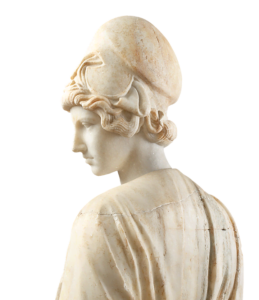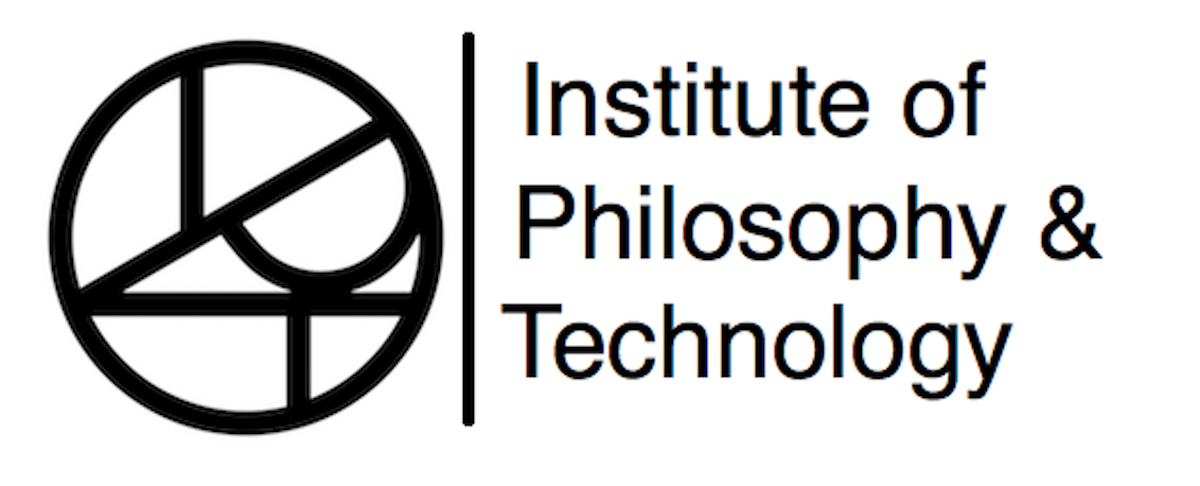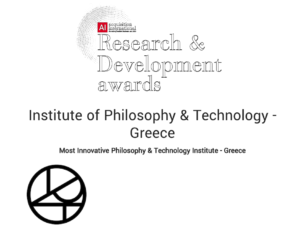Spring Webinar 2023
The Cogs of the Ideal City
A New Reading of Civic Ethics in the Platonic Corpus

Applications now open!
Please apply here
General Description:
This is a series of four workshops on civic ethics in Plato. Beyond a description of legal status, Plato appreciates citizenship as a manifestation of human consciousness. Thus, across his dialogues, but mainly in the Republic and the Laws, he employs civic ethics to articulate our position in the cosmos, here and there, now and then, and to negotiate our telos in both historical and metaphysical terms. Civic virtue is second only to philosophical insight, the privilege of which belongs to inspired leaders. In this context, we will study two famous Platonic metaphors about cultivating the civic mindset: shared music and drink aesthetics (Workshops 1 and 2) are paramount in the ideal city because they enable citizens to develop self-awareness through culturally specific ways. To foster social cohesion, Plato also rehabilitates traditional literary and rhetorical tropes in his dialogues; the myth of the Golden Age which appears in the Republic but also the Laws and famously the Statesman (Workshops 3 and 4) enables communities to envision their role in history under the type of leadership that will align them with the divine law, away from history’s transient nature. Thus, Plato’s totalitarianism can be understood (though not excused) as an attempt to escape historical failure by prescribing a collective different state of consciousness. The accommodation of these ideas in early Christianity will also be discussed at the conclusion of each workshop.
Coordinator: Eva Anagnostou-Laoutides (eva.anagnostou-laoutides@mq.edu.au)
Eva Anagnostou-Laoutides is Associate Professor, Department of History and Archaeology, Macquarie University, Sydney. She was a Future Fellow of the Australian Research Council (2017-2022), while she currently leads an Australian Research Council Discovery Project on Crises of leadership in the Eastern Roman Empire (250-1000 CE). Her research focuses on the use of mythic and religious traditions in the Hellenistic and Augustan periods, as well as the reception of Greek philosophy in Christianity. She is the author of Eros and Ritual (Gorgias, 2005 and 2013) and In the Garden of the Gods (Routledge, 2017) and co-editor of several volumes, including Eastern Christianity and Late Antique Philosophy (Brill, 2020) and Later Platonists and their Heirs (Brill, 2023). She just completed a monograph on The History of Inebriation from Plato to Landino and is working on another book on Sexuality in Greek Epigrams and Later European Literature.
Duration: 4 weeks (6 hours)
Meetings: Saturdays, 11.00 a.m. – 12.30 p.m. (Greece time) (4 sessions: 25/2, 4/3, 11/3, 18/3)
Place: Online (MS Teams)
Deadline for Applications: 20 February 2023
Webinar Fee: 60 €
Number of Participants: 30 (maximum)
A certificate of attendance will be provided upon request to all registered participants
Video recording will be available to registered participants
Seminar sessions
Workshop 1: Plato on Social Harmony and Musical Education
In this session we will examine Plato’s concept of justice which accords with cosmic reason and law, providing a key link between civic life and the divine order. Plato believes that musical education is crucial for realizing justice in the Kallipolis, as described in the Republic, and in Magnesia, the second-best City, whose constitution is discussed at length in the Laws.
We will revise the view that Plato’s vision was utopian; by analysing the aesthetics and performative aspects of Platonic citizenship, we will trace the cognitive paths that Plato lays for our attempt to emulate the gods. Plato’s influence on Clement of Alexandria and the role of music in “performing” Christian citizenship will be also introduced.
Workshop 2: Plato on Drinking and Civic Consciousness
Across his dialogues, Plato chooses powerful metaphors to explain the nature of philosophical inspiration. Arguably the most controversial image he employs is that of “being drunk.” In this session we will discuss philosophical inebriation in the Symposium and the Phaedrus, before turning our attention to the Test of the Wine that Plato recommends for the average citizen in the Laws. Drawing on the therapeutic properties of wine, Plato argues that the Test is a training tool that allows the citizens to develop their self-awareness and monitor their ethical progress. The use of drunkenness as a metaphor for intellectual and spiritual progress had a notable impact on Clement of Alexandria and early Christian mystics such as pseudo-Macarius.
Workshop 3: Plato on History and the Golden Age
Having witnessed the failure of the Athenian democracy, and deeply traumatized by Socrates’ execution, Plato systematically reworks in his dialogues Hesiod’s tale of the Golden Age. In his view, the Ideal City should rely on laws to replicate, to a certain extent, the innocent human symbiosis of that early age. For Plato, history is synonymous with decay and the struggle to withstand it. Accordingly, in this session we will discuss the myth of the Golden Age in the Republic and the Laws, but also the Timaeus and the Statesman as an attempt to overcome historical failure and connect to the Golden Age of Cronus. We will conclude with the influence of these ideas in early Christianity.
Workshop 4: Leadership, Rhetoric, and Platonic Notions of the Social Contract
Starting with Popper and Vlastos, Plato has been criticized as a totalitarian who insists on the excision of art from the Ideal City, rejects sophistic rhetoric, and defends the priority of the soul over the body. A careful reading of Plato, however, including the Phaedo, reveals that Plato could not have rejected the body, especially since negotiating the profile of the “body politic” has been at the forefront of his thought. Reviewing the theses mentioned above, we will discuss in this final session the relationship between citizens and philosopher-kings in Plato, with emphasis on the Statesman. Is indeed the ideal ruler a human emulator of Cronus?
Please apply here
For questions, please contact: info@ipt.gr

